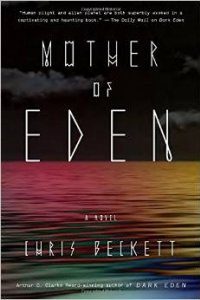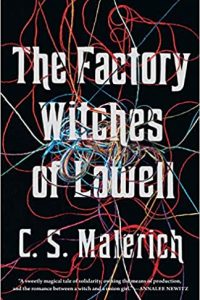Paul Di Filippo Reviews The Scholars of Night by John M. Ford
 The Scholars of Night, John M. Ford (Tor 978-1250269171, 256pp, $18.99) September 2021.
The Scholars of Night, John M. Ford (Tor 978-1250269171, 256pp, $18.99) September 2021.
While we all eagerly await the heretofore-unseen last novel by John M. Ford, Aspects, due in April of next year, we will have to quench our desires for all things Fordian with the various reprints that are tilling the soil for that harvest. We earlier got The Dragon Waiting (my review here) which had gone 18 years between editions. Now comes The Scholars of Night, which last saw print 32 years ago!
We commence with an excellent introduction from Charles Stross (his affinity for this title plainly derives from his own Laundry File series), who lays down the cultural and geopolitical history attendant upon the birth of the book, whose action is all contemporaneous, more or less, with its date of composition, circa the mid-1980s. Stross highlights the vast differences between our present day and that era from nearly 35 years ago. And while his observations are accurate, I’d like to emphasize the flipside of the book. It reads as fresh and as mimetically—almost journalistically—truthful now as it did then. Sadly or not, there’s something eternal about the Machiavellian machinations of the plot. For instance, when a team of assassins breaks in upon one of the pivotal characters and kills him, while making it look like a heart attack, it is not too hard to line up in our minds the covert poisoning of Alexei Navalny from 2020. Similarly, while there are no drones of course in the book, the surveillance tech and tactics that Ford shows us are eerie forerunners of 2021.
Attempting to pigeonhole Scholars as a simple political thriller or spy novel would do a disservice to the book, since it also partakes of the paranoid conspiracy genre (think The Crying of Lot 49), the techno-thriller, and even a bit of alt-hist Elizabethean-punk. I find it to be firmly embedded in the broad fantastika canon, and believe that any reader who generally favors more cleanly delineated echt science fiction will cherish and welcome it.
We open quietly enough with one of our main characters, Nicholas Hansard, part-time professor at the fictitious Valentine College, as he enjoys a board-game evening with several colleagues. But then the arrival of a mysterious courier, bearing just-recovered documents from WWII, sends Hansard’s plans awry. He knows his academic sleuthing skills are immediately needed by his occasional boss, Raphael, who is head of the covert firm dubbed “The White Group, a research and advisory agency on matters of intelligence policy and international affairs.” This bland phrasing conceals a squad of master spies and killer bureaucrats with their fingers in a hundred hot pies.
Before you can say “sabbatical,” Hansard is sent off to England, ostensibly to unravel the mysteries concealed in a newly discovered lost play by Christopher Marlowe. Ultimately he becomes entangled in the main Macguffin, the theft of some top-of-the-line computer hardware and software that will allow its possessor to futz around with official communications and potentially start WW III.
Hansard’s main opponent in this game—although he hardly knows at first that she exists—is the master spy code-named WAGNER. WAGNER is the protégé of one Allan Berenson—the fellow whose murder I outlined above—an academic who is also friends with Hansard. WAGNER’s mission is to retrieve all the parts of the Macguffin from various other agents and assemble and test the whole unit.
This narrative engine—sequential encounters with a host of bad apples—allows Ford to process us through a variety of venues and personages, when using WAGNER’s POV for about half the time. The drama involving a sociopathic UK killer-for-hire named Cherry could have been a short story all its own. Hansard’s thread is more linear and contiguous, but no less suspenseful and engaging, especially since Hansard is put through some deep emotional territory involving memories of his dead wife. (Hansard’s end state, beautifully resonant with the novel’s start, is particularly affecting, both redeemed and damned, hopeful yet resigned, useful yet pitiable. “They were all scholars together, scholars of forbidden things and unspeakable, Scholars of the Night.”)
Every time the murderous and implacable WAGNER comes into contact with a new victim, Ford takes the time to insert a big chunk of that newbie’s backstory, fleshing them out nicely and in a non-intrusive way. Generally speaking, while Hansard and Wagner get the lion’s share of character development, every single other person, even walk-ons, also emerges as a living and breathing entity.
Ultimately, saving the world is down to an ultra-climactic confrontation between WAGNER and Hansard—with some help from the droll and cynical UK intelligence man Gareth Rhys-Gordon (“I’m borrowing [Hansard] to identify our target. He’s waived his constitutional rights to be kept alive.”)
And of course Hansard’s vivid mental recreation of Marlowe and his Elizabethan hijinks are also integrated beautifully.
Featuring much black humor, kinetic fight scenes, a certain cosmopolitan gravitas and savvy about ethics and utilitarianism, this book alternates tender, somber moments with vicious brawls, without one wasted word.
Anyone who enjoyed Neal Stephenson’s Reamde, which— coincidentally or inspirationally?—features a lot of the same tropes and overall vibe will dive into Ford’s happily revived novel with excitement and glee.
 While you are here, please take a moment to support Locus with a one-time or recurring donation. We rely on reader donations to keep the magazine and site going, and would like to keep the site paywall free, but WE NEED YOUR FINANCIAL SUPPORT to continue quality coverage of the science fiction and fantasy field.
While you are here, please take a moment to support Locus with a one-time or recurring donation. We rely on reader donations to keep the magazine and site going, and would like to keep the site paywall free, but WE NEED YOUR FINANCIAL SUPPORT to continue quality coverage of the science fiction and fantasy field.
©Locus Magazine. Copyrighted material may not be republished without permission of LSFF.







